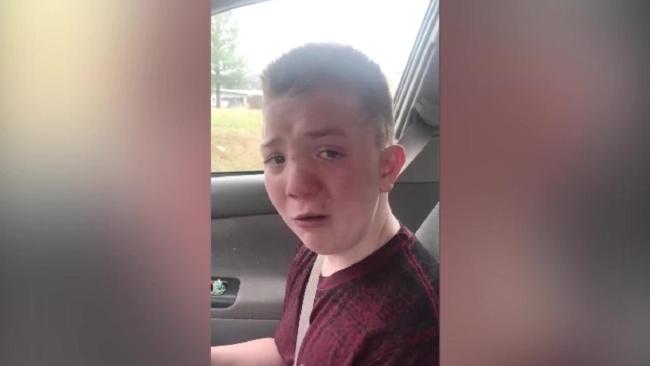8 Signs That the Person Crying Bullying is Actually the Bully
Dec 14, 2017 • Tim Henares

Dec 14, 2017 • Tim Henares
In today’s world, where every single act of disagreement can suddenly be painted as “bullying,” it’s become more and more difficult to know exactly who is oppressing who. The answer isn’t always as cut and dried as, say, a Nazi browbeating a Jew (and even that, nowadays, no longer seems so undisputable). Sometimes, it takes a bit of a step back to discover if someone who’s claiming they’re being bullied actually happens to be a bully themselves.
Here are a few signs that things aren’t what they seem, regardless of video virality or successful GoFundMe pages.
The reality is, when someone doesn’t agree with us, they’re not bullying us – they’re simply not agreeing with us. The most loud and opinionated people seem to think that they have every right to what they have to say, but are generally shocked when people don’t take too kindly to them.
Newsflash: that right cuts both ways.
A recent SWS survey has stated that nine out of ten Filipinos hate cyberbullying. The tenth person is Mocha Uson.
The thing is, people like Mocha (or even PInoy Ako Blog) are often the first people to cry about being oppressed when they practically make a living oppressing other people. Just because one may be more palatable to your political tastes doesn’t make them less guilty of it. They’re merely two sides of the same coin, veracity aside.
The problem is, when we think that because PAB or Mocha are horrible people, then it becomes our right to bully them. No, it isn’t. We are free to tell them where they are wrong. Heck, we can even make jokes at their expense. But there is a reason why Senator De Lima, who clearly will never be on Mocha’s Christmas list, or vice versa, draws the line at slut-shaming Ms. Uson: it’s simply beside the point. You want to harp on her politics, her lying, her inconsistency, her hypocrisy? Sure. But her bedroom antics have zip to do with it. Conversely, doxxing PAB when she wanted to keep her identity private was clearly crossing a line, too. Possibly even a legal one.
In fighting bullies, let us not become that which we despise.
When plenty of people are yelling at you for being a d-bag, there’s often a good chance it isn’t because they’re bullying you, so much as most people simply don’t like what you have to say. A lot of bullying tends to be curbed when they quickly realize that they can’t get away with it the way they initially thought they could. It’s also hilarious when the situation is reversed, and they use their numbers to justify their antics, because might makes right and all that. Speaking of which…
This needs no explanation, does it? If they can’t take the heat, why are they going back to the flamethrower?
When Milo Yiannopoulos, aka @Nero, was finally deleted from Twitter…
For emphasis.
… his defenders believed he was being oppressed because he was denied a platform to express his opinions.
The problem is, the platform, Twitter, is a private company, and thus, make the rules as they please. This is why there isn’t a nice little space for black people in Stormfront, since Neo-Nazis make the rules there.
Let’s make things clear: the internet is a huge enough place where you can find an audience for your message, no matter how abhorrent, if you look hard enough. Nobody owes it to you to make it as easy as possible, though.
Take a look at this headline. Just… take a look.
By process of elimination…
While yes, the Senator is within his rights to sue for defamation if he truly believes this is what happened to him, what did not happen to him was that he was bullied, and it’s simple why not: you can’t bully someone who is clearly more powerful than you. You can pester them, you can be a thorn in their side, but you can’t “bully” them, as it goes against the very nature of bullying, which is an act of impunity and power-tripping.
This is why the real bullies will not stop at attacking their hated target, and instead go for their families: in the end, a Senator’s son or daughter is still not a Senator.
Instead of getting to the heart of why they’re supposedly being bullied, they just dig in and double down on their behavior.
When a kid cries about bullying after he first calls a bunch of black kids the n word, you shouldn’t be surprised why the kid is crying in the first place. It’s called the consequences of one’s actions, and whether or not he understood the impact of his choice of words, he had it coming.
Ultimately, when a bully cries for help about bullying, it’s often because their own brand of bullying has backfired on them, whether because they got shouted at on the internet, or lost their job because they failed to realize that “freedom of expression” does not mean “freedom from consequences of said expression.”
Yes, we’re all free to be asshats if we wanted to be. But everyone else is also free to not have to listen to our drivel, and show us the door – and that includes the people who sign our paychecks.
What other signs are there? Share them with us below!
Input your search keywords and press Enter.
